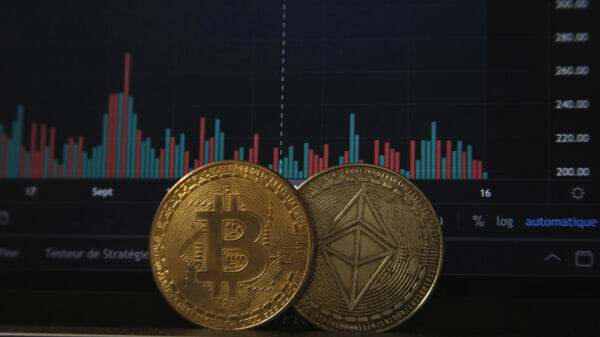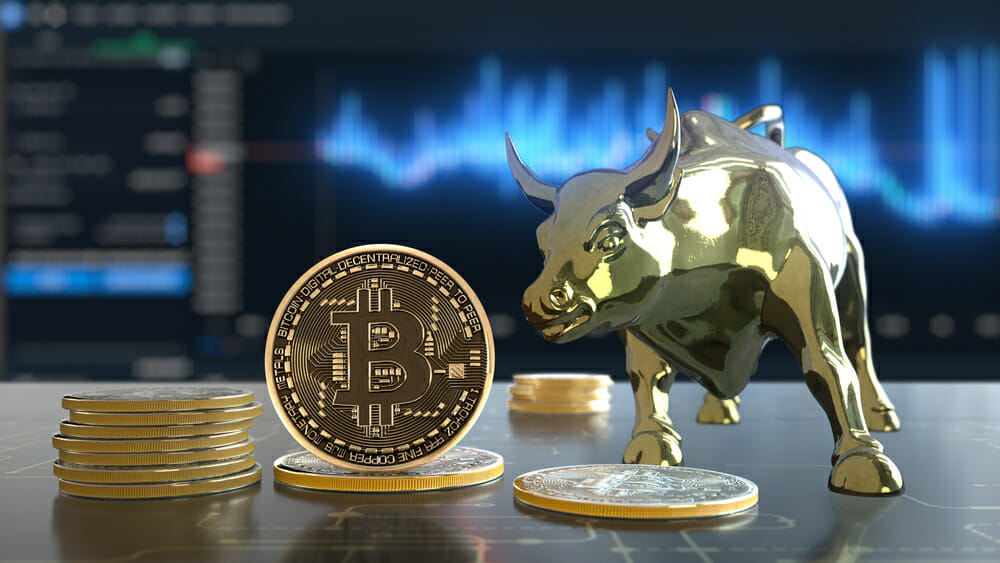Over-the-counter (OTC) trading refers to trading that doesn’t occur on automated exchanges. So, what exactly is OTC trading? Who uses it and why? To delve into the world of OTC desks and how these off-the-radar exchanges function, Magazine spoke with industry insiders for the scoop.
Commonly, OTC trading is associated with large off-market transactions, like when companies such as MicroStrategy conduct multimillion-dollar deals using OTC desks provided by platforms like Coinbase or Kraken.
However, OTC trading isn’t just about big players, as it can also involve peer-to-peer platforms such as LocalBitcoins, assisting individuals in trading BTC either face-to-face or through bank transfers since 2013. There are also medium-sized regional OTC desks bridging the gap, facilitating crypto transactions for both individuals and companies.
Exploring Over-the-Counter Trading
Why do people opt for OTC deals when popular exchanges like Binance and Coinbase offer convenient fiat on-ramps?
Amin Rad, the CEO of Dubai-based OTC broker Crypto Desk, explains that OTC trading has its advantages. He points out the limited ways to convert fiat into cryptocurrency, emphasizing three main methods:
1. Credit and debit card transactions offer a convenient way for new users to buy cryptocurrency through exchanges, but they come with high fees of up to 10%. Many banks and credit card issuers still view these transactions as suspicious, leading to account closures or locks upon discovering the nature of the transactions. Additionally, credit cards from certain countries like Russia, Kazakhstan, and Ukraine are automatically declined on exchanges. Rad notes, “Users can only buy crypto using this method and cannot sell it, as withdrawing money to a credit card is typically not possible.”
2. Another option is purchasing through bank transfers by sending fiat to an exchange’s bank account. However, Rad highlights issues with banks, especially in regions like the United Arab Emirates, where banks may not want to be associated with cryptocurrency trading. He mentions that you may have to mislead the bank about the purpose of the transfer to avoid account closures. Banks might involve their compliance teams, asking detailed questions about the funds’ destination and the rationale behind crypto purchases. Moreover, bank transfers can take several days, potentially causing missed trading opportunities due to delays.
3. The third method, OTC trading, allows buyers and sellers to exchange directly or through a trading desk like Rad’s. It removes credit cards from the equation, making it harder for banks to link the funds to cryptocurrency transactions. OTC transactions provide immediate confirmation of receipt, eliminating the waiting period and the risk of missing out on trading opportunities.
Jerry Tan, OTC payments manager at Singapore-based exchange XT, explains that OTC trading benefits whales, large cryptocurrency holders, by enabling them to execute significant trades without impacting market prices negatively—a phenomenon known as “slippage.” Buying large volumes of cryptocurrency on exchanges might cause prices to rise before completing the purchase, or prices may drop due to selling before completing the trade.
“A single seller may not be able to transact a large amount like 100 BTC. Thus, you may need to purchase from multiple sellers at higher prices, leading to slippage from your initial desired price.”
However, despite the advantages of OTC trading, there are risks involved, such as counterparty risk and the potential for scams, as highlighted by Victor Olmo, fund partner at NewTribe Capital. Several scams were recently uncovered in a piece profiling Rad and his Crypto Desk OTC exchange.
Users of OTC Desks like Crypto Desk
While Rad’s operations are local to the UAE, he notes that his clients typically fall into two main categories: local cryptocurrency buyers diversifying from traditional finance and expat sellers looking to exchange crypto for local currency to cover expenses like real estate, cars, and living costs in the UAE.
Given the complexities with traditional exchanges and bank transfers, particularly the scrutiny and restrictions from banks, both sellers and buyers opt for OTC desks to facilitate their transactions seamlessly. Rad’s daily turnover, though in the single-digit millions, mostly comprises numerous small OTC deals manageable by average individuals seeking smooth transactions without bank-related issues.
Varying Regulatory Environments
Crypto Desk, based in Dubai, operates with minimal regulatory requirements, where clients only need to verify their identity and sign a declaration letter affirming no involvement in illicit activities to conduct transactions. Rad emphasizes the importance of documentation for compliance purposes, even though he isn’t mandated to report transactions to authorities, he keeps records indefinitely.
Regarding other OTC desks, regulations mostly align with standard exchange requirements for Know Your Customer (KYC) practices but are less strictly enforced.
Panu Peltola, chief compliance officer at Finland-based LocalBitcoins, underscores the tightening regulations worldwide, especially in Asia and North America, with the EU planning comprehensive rules to monitor transactions over 1,000 euros from unhosted wallets. The growing volumes and adoption rates have policymakers focusing on balancing innovation, growth, and risks.
“In the U.S., any transaction over $10,000 involving cash must be reported to the IRS, regardless of the recipient. This mandate extends to electronic money transfers received by financial institutions above a certain threshold, illustrating the evolving regulatory landscape.”
When it comes to the impact of inflation compounding on the market, the situation in Asia presents a more complex and fragmented regulatory environment compared to regions like the EU. This is due to the presence of numerous countries in Asia, each with its own set of regulatory procedures, both existing and upcoming. Among these, Mainland China stands out for its stringent capital controls, aiming to completely eliminate trading and mining activities. In a conversation with Cointelegraph in October 2021, Henri Arslanian, the PwC crypto lead and former chairman of the FinTech Association of Hong Kong, highlighted the emergence of numerous physical OTC shops, particularly in tourist spots, to cater to mainland Chinese visitors.
Even in Hong Kong, known for its financial openness, there are discussions about banning retail cryptocurrency trading, which could extend to OTC markets, potentially driving these operations underground.
Singapore has also recently tightened its regulations. According to Tan from XT, companies wishing to provide cryptocurrency trading and OTC services to Singaporean residents must acquire a license under the Payment Services Act. Exchanges lacking this license are prohibited from offering services to Singaporeans, and Bitcoin ATMs on the island were instructed to cease operations earlier this year.
In terms of revenue generation, OTC desks typically make money through spreads, similar to traditional exchanges. While regular exchanges may charge around 0.25% per transaction, OTC desks often command commissions exceeding 1%. In the past, margins between 2% and 3% were common, as noted by Rad.
Operational models of OTC desks vary, with some matching buyers and sellers manually, while others automatically fulfill orders using their liquidity pools. Rad, emphasizing the advantage of having an in-house fund pool for secure transactions, points out that client preference leans towards dealing with desks with such capabilities.
Furthermore, differentiation among OTC desks can also be seen in whether they trade fiat for cryptocurrencies like Bitcoin or Ether, or solely for stablecoins such as USDT or USDC. The rising popularity of stablecoins is attributed to the flexibility they offer in converting to more volatile cryptocurrencies when desired.
Rad anticipates a flourishing OTC market catering to both retail and institutional clients due to its personalized and direct approach compared to larger exchanges. Many clients find person-to-person transactions more appealing than wiring funds to international exchanges, especially for significant one-time transactions.
In conclusion, the growth and success of the OTC market are expected to continue, with local exchanges predicted to dominate their regions due to their specialized market knowledge, compliance solutions, and licensing advantages.













































